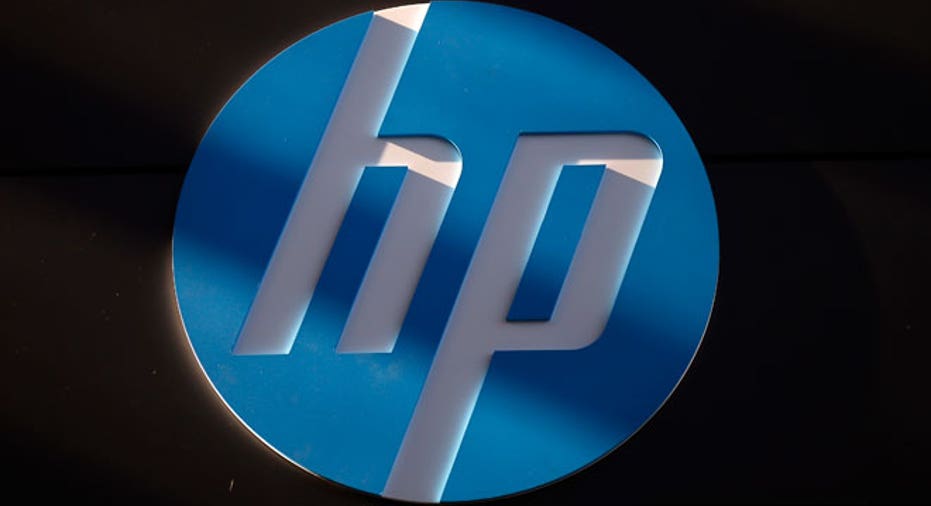Hewlett-Packard Officially Files to Split Into Two Companies

Hewlett-Packard Co. (NYSE:HPQ)took a big step toward its Nov. 1 breakup Wednesday by filing paperwork with the Securities Exchange Commission outlining the finances of the two businesses it plans to create.
The filings detail two very different companies: a printer-and-PC vendor called HP Inc., and a supplier of corporate technology called Hewlett Packard Enterprise.
H-P has struggled through much of the past decade with declining revenue, corporate scandals and management changes. And the company has stood on the sidelines as companies such as Amazon.com Inc. and Apple Inc. have created compelling cloud computing, smartphone and tablet businesses.
In the end, H-P's size worked against it, CEO Meg Whitman said in an interview last week describing how she came to the conclusion that the breakup had to happen.
"We needed to be smaller, more nimble, we needed to be more focused," she said. "And we needed to have a capital structure for each company that would allow them to pursue their objectives."
Hewlett-Packard Company (HPQ) | FindTheCompany!function(d,s,id){var js,fjs=d.getElementsByTagName(s)[0],p=/^https:/.test(d.location)?'https':'http';if(!d.getElementById(id)){js=d.createElement(s);js.id=id;js.src=p+"://cdn1.findthebest.com/rx/widgets.js";fjs.parentNode.insertBefore(js,fjs);}}(document,"script","ftb-widgetjs");
It is a complex job, dividing a 300,000 person company that spans 170 countries and 600 locations. The work began last fall, shepherded by a 500-person Separation Management Office, which is creating the new corporate entities, bank accounts and computer systems that will make up the new companies. The executive leading this $1.8 billion effort, Bill Veghte, announced his departure from H-P on Tuesday, an unexpected hiccup in what, so far, had been an otherwise smooth process.
HP Inc. will focus on returning cash to shareholders, while expanding into new markets such as 3-D printing, Ms. Whitman said. Hewlett Packard Enterprise, by contrast, will look for growth as it tries to stay relevant in a corporate computing market that is being transformed by the cloud. That means buying new companies, Ms. Whitman said.
"Acquisitions have got to be a part of the future of Hewlett Packard Enterprise," she said. "This market's moving too fast."
H-P's server, storage and networking gear has better long-term prospects than its PC and printer groups, said Jim Osman, the CEO of Edge Consulting Group, an equity research firm that specializes in spinoffs. Another prospect: The split also could revive talks between Ms. Whitman and executives at EMC Corp, he said. EMC and H-P both held off-and-on merger talks last year, but they broke down just weeks before H-P announced its spinoff plan, The Wall Street Journal has reported.
H-P already was in the midst of exploring a breakup when Ms. Whitman took charge of the company in late 2011. At the time, she said H-P made more sense as a single entity than apart.
But the 2011 split was different from the one described in Wednesday's SEC documents. Back in 2011, H-P was toying with the idea of spinning off its unprofitable PC business, much as IBM Corp. had already done in 2004.
Hewlett-Packard Company (HPQ) - Stock Price | FindTheCompany!function(d,s,id){var js,fjs=d.getElementsByTagName(s)[0],p=/^https:/.test(d.location)?'https':'http';if(!d.getElementById(id)){js=d.createElement(s);js.id=id;js.src=p+"://cdn1.findthebest.com/rx/widgets.js";fjs.parentNode.insertBefore(js,fjs);}}(document,"script","ftb-widgetjs");
But rolling the highly profitable printing business into the new HP Inc. creates a spinoff company that is more likely to return cash to shareholders. H-P believes that the current breakup will cost as much as $450 million in "dis-synergies"--extra costs incurred by having to duplicate internal functions such as legal and human resources departments and creating new product brands. The PC-only carve-out proposal would have cost even more, Ms. Whitman said. "There was a big dis-synergy of about $1 billion around building an entirely new brand for the PC business," she said.
H-P and its board began investigating the possibility of a split early last year, but it took Ms. Whitman several months to become convinced it was the correct course.
"I was quite convinced that we should keep this company together, really up until this past summer," she said. "What I realized was, this market is changing at lightning speed. I've been in the technology business a long time. I've never seen markets move as fast as this."
(By Robert McMillan)



















